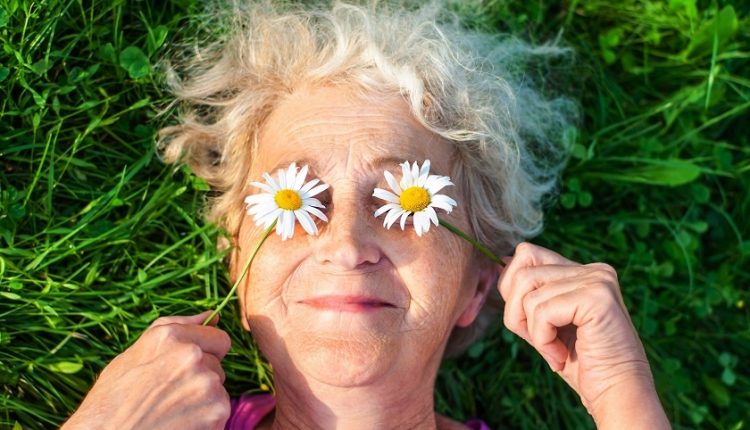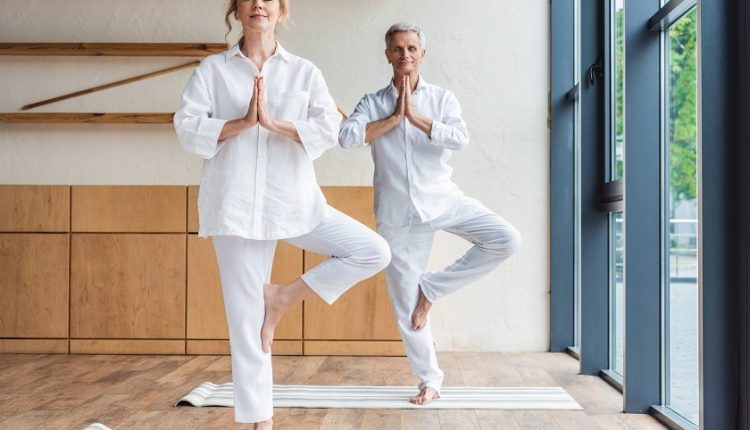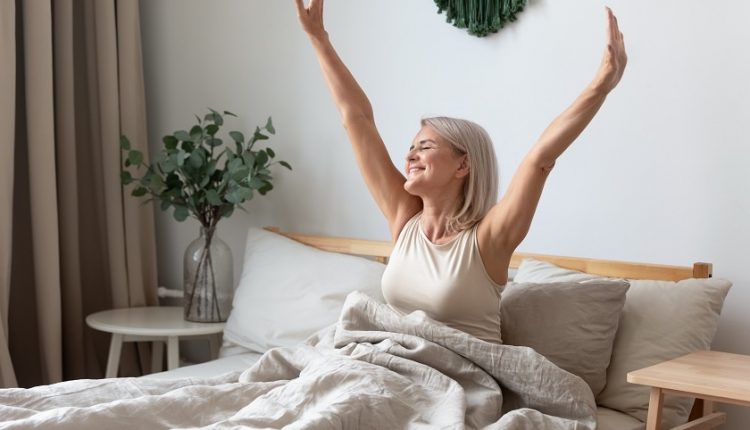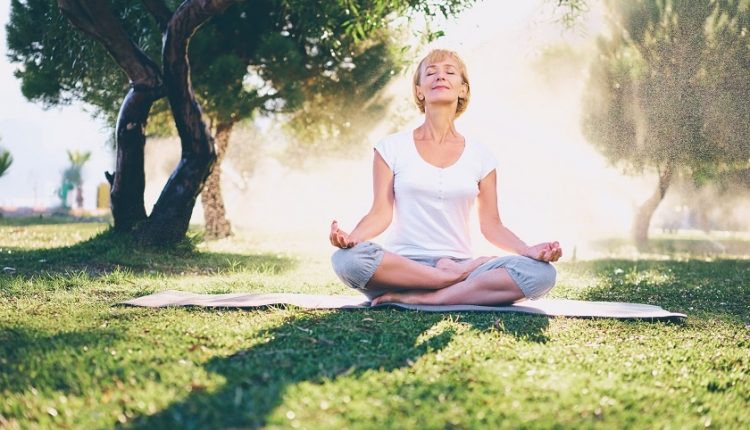
Can Yoga Improve Mental health in Senior Adults?
Rejection.
Isolation.
Mood swings.
Anxiety.
A feeling of helplessness.
We may all experience such feelings at different stages, regardless of age. But as we get older, a lot of negativity creeps into the mind, especially during retirement.
Despite its normality, a temporary mood swing can quickly become one of the most troubling problems, resulting in severe mental illnesses. Depression, anxiety, insomnia, and those listed above are among the most common reasons individuals seek treatment with complementary therapies.
However, when it comes to addressing mental health issues, yoga is more effective than almost any other form of therapy for seniors. As a form of exercise and relaxation, yoga is perhaps the most effective way to improve physical and mental health. The various asanas or positions offer incredible results if done regularly and correctly.
Moreover, yoga for seniors appears to be a promising intervention since it is cost-effective and easy to implement. In fact, for ages, yoga has been known for promoting physical, mental and spiritual well-being. Additionally, yoga can significantly improve a senior citizen’s state of mind.
Several studies have shown the physical health benefits of yoga for seniors, but many people in their golden years are unaware of the mental health benefits of yoga. For this reason, we have listed some of yoga’s secret mental health benefits for seniors, with the bonus of an inspiring story of a senior whose life has significantly changed after practicing yoga.
Four Mental Health Benefits of Yoga for Seniors
So with no further ado, let’s learn how yoga can improve seniors’ mental health. Perhaps the most important mental health benefits of yoga are the following four:
1. Better Sleep
Yoga helps seniors feel calm and relaxed in their golden years, allowing them to sleep better. Retired adults need a good night’s sleep to stay alert and sharp all day long. Yoga can help them stay fit and healthy as well. Moreover, the risk of obesity and other chronic conditions increases when one does not get enough quality sleep. To your surprise, among yoga practitioners, over 55% report improved sleep, and over 85% report reduced stress.
How Does Yoga Help You Sleep?
Yoga can improve sleep in many ways:
- Mindfulness: This means a state of non-judgmental awareness at the moment. Mindfulness is an essential component of many types of yoga. In adults, mindfulness can boost melatonin levels and reduce sleep disturbances.
- The act of breathing: This is a component of yoga as well. The act of deep breathing can induce sleep.
- Physical exercise: Daily movement promotes sleep quality.
- Weight loss. Losing weight may not be the primary goal for some yoga practitioners, but it can positively impact their sleep. Weight loss can reduce or eliminate many sleep problems, such as sleep apnea.
- A regular yoga practice can also positively impact specific sleep disorders such as insomnia.
Read More about exercises for better sleep for seniors.
2. Less Stress
Stress-relieving benefits of yoga are well documented in scientific studies. For example, a 2018 study found that women who practiced Hatha yoga three times a week saw positive results. After 12 sessions, anxiety, depression, and stress levels were significantly reduced.
This study suggests that yoga can be a complementary medicine that can reduce the need for prescription drugs. Moreover, a 2020 study of male adults found that yoga stretches helped to reduce cortisol levels and promote parasympathetic nerve activity, promoting relaxation.
3. A Happier Life
Nowadays, many seniors worldwide use Yoga as an adjunct therapy to improve their health and quality of life. Those who practice Yoga regularly have better moods and feel less tired.
Additionally, Yoga reduces the side effects of chemotherapy, including vomiting and nausea, which enhances the overall quality of life. As a result, you become more accepting, relaxed, and energized as you practice Yoga.
Remember that Yoga is neither a cure-all for all diseases nor a replacement for medical care. However, as mentioned previously, it can lessen anxiety and stress and improve sleep and cognition, making people happier and more self-aware. Clearly, this leads to a more fulfilling and happier life for seniors.

Now, we invite you to read the inspiring story of Claire Copersino and see how yoga helped her find new motivation to live after losing her soulmate to cancer:
In 1997, Claire Copersino met her late husband, Rocco, at a yoga class. “Yoga quickly became an integral part of our relationship,” she says. At the time of their meeting, Rocco had Stage 3 Non-Hodgkin’s lymphoma and was doing well after his first round of treatment.
Claire had planned to attend the Kripalu Center in Massachusetts in March of that year. Rocco’s cancer returned just before she was scheduled to leave, so he began a new round of aggressive chemotherapy. “It was hard to leave, but he insisted that I continue to live my life,” Claire says. As soon as she returned from the training, Rocco helped her open a yoga studio next to their store. In August 2002, Rocco died after spending two more precious years with his wife.How Did Yoga Help Claire?
Claire’s world changed overnight. “He was everything to me,” she says. During that winter, she struggled to cope without her best friend and anchor. A new Ashtanga Yoga studio had recently opened nearby, and Claire enrolled right away. “Yoga gave me a purpose, a reason to get up in the morning. It was a ritual, like going to church,” she says. “No matter what, I’d say to myself each morning, ‘OK, this is the starting point.'”
Claire’s Yoga practice allowed her to process her grief physically, which saved her from sinking deep into despair. She cried every day on the mat, letting go of her emotions. “There was a purifying quality to the practice,” she says. “It allowed me to move the grief through my being, rather than getting stuck.”
4. To Live in the Moment
We live in a world that constantly pulls our attention in a million different directions, making it difficult to focus on the present moment. We can only perceive this by fully immersing ourselves in the experience of right now. Yoga relies on the clarity of the body to bring the mind into the present. Instead of dictating actions to the body, Yoga teaches our mind to listen to the body in the pure light of awareness. And when you wake up in the morning, whether to an alarm, birds outside in the trees, or the sunlight shining through your window, Yoga helps you notice: notice the sounds, the sights, and all the things that arise in your experience as you open your eyes.

Yoga is about clearing away whatever is in us that prevents our living in the most full and whole way. With yoga, we become aware of how and where we are restricted — in body, mind, and heart — and how gradually to open and release these blockages. As these blockages are cleared, our energy is freed. We start to feel more harmonious, more at one with ourselves. Our lives begin to flow — or we begin to flow more in our lives.
– Cybele Tomlinson
Final Words
For thousands of years, yoga has been practiced, but its popularity has never waned. It has even grown more popular in the past few decades. Yoga helps rejuvenate your mind and body, which is one factor that contributes to its impressive growth. Thus, it is an excellent exercise for gaining a better understanding of your spiritual side.
Read more:


My body and soul were in terrible condition before I started yoga. I couldn’t think of anything but myself. Yoga taught me how to love my body and soul and to keep an eye out for positive things happening around me. A large part of my happiness and inner peace can be attributed to yoga.
A quick question. Is it possible to do the asanas by myself with the help of a yoga book?
Although I appreciate self-study, reading books isn’t the best way to learn yoga. They are either too general, so you need several books to cover the topic, or too focused, meaning you need more books on various topics. In addition, they are not interactive, so you cannot ask questions or see demonstrations. If you want to improve your mental and physical health through yoga, consider taking classes online or in person.
Wow, such a great article! Yoga is part of self love, and I am a big self lover. I started my yoga journey at the beginning of the pandemic, and I’m still going strong. As I increased my dedication towards yoga, my life changed, and the process of change is happening daily.
I feel, eat and act differently. It’s like day by day, I am moving towards the best version of myself. All the best to those who practice yoga daily, and lots of love and blessings for beginners. Remember, this is a journey worth taking.
Yoga has impacted my life in many ways. I genuinely feel more energetic and active throughout my day when I do yoga every morning. I mean, it’s hard sometimes but the feeling I have when I’m finished…. it’s indescribable.
I feel more optimistic, and I focus better on my work. I have become fit but that’s not why I started doing yoga anyway. I believe yoga has helped me to inculcate the habit of gratitude for all the blessings that I have in my life. The reason behind it is that yoga increases the feel good hormone like serotonin.
I have been practicing yoga for 135 days now. It has become as essential as taking a shower each day. I have practiced pilates in the past, and it had a similar effect, but not to the degree I am currently experiencing.
I found what I needed accidentally on YouTube; I suggest everyone search for themselves, I follow yoga with Adrian, and I adore her. Also, it is such a simple, straightforward practice that makes it so easy to fit into your life. It’s only 30 minutes a day, sometimes less than that. It has changed my life and posture…
I was interested to read this article on the potential benefits of yoga for mental health in older adults. It’s great to see research exploring alternative interventions that could improve mental health outcomes, especially for vulnerable populations.
While I agree that yoga can be beneficial for many people, including seniors, it’s important to remember that it’s not a one-size-fits-all solution for mental health. For some individuals, yoga may not be accessible due to physical limitations, financial constraints, or personal preferences. Additionally, while yoga can be a helpful adjunctive treatment for mental health conditions, more is needed for more difficult or complex situations.